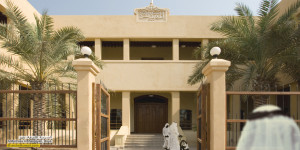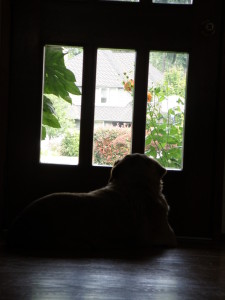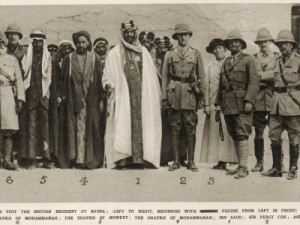“On a visit to Paris, the Saudi crown prince is said to have ironed out most obstacles to a multi-billion-euro plan to equip the Lebanese army with French weapons in the face of regional instability, but one final signature is still missing. Sources with knowledge of the talks told FRANCE 24 on Wednesday that the absence of the finance minister among the group of Saudi officials accompanying Defence Minister and Crown Prince Salman bin Abdulaziz al-Saud to Paris was the official reason for the delay…………”
“According to a March 8 source, the closure of the Ersal-Qalamoun front “will reflect positively on the operations the Syrian army and its allies are carrying out in the Damascus countryside against armed extremist groups, which is something that Saudi Arabia and other countries supporting the Syrian opposition groups will never allow to happen.” Other sources added that “Saudi Arabia has put the $3 billion donation to the army on hold because of the presidential vacuum and also because of Washington’s opposition to this donation for many reasons including Riyadh’s intention to sign a $25 billion arms deal with Paris………..”
The Saudis have been trying for years to find a formula to weaken the grip of Hezbollah over Lebanese politics. Ever since Hezbollah defeated the occupying Israeli IDF in a long guerrilla war and forced it to withdraw from southern Lebanon in the year 2000. The Saudi campaign escalated after Hezbollah again defeated the IDF and forced it to abort its incursion into Lebanon in the summer of 2006. The only times an Arab army or armed group has ever defeated the IDF.
The Saudis’ best Lebanese man, the late Rafiq Hariri, was assassinated in 2005 by parties still unknown (and I mean truly unknown). Their second best man Saad Hariri decamped quickly for Paris after a short stint as prime minister (the job is part of the Sunni share of power). He is now reported by the media to have flown back to Paris after a short visit to Beirut. The rest, the Druze and the Falangist rightist warlords, represent smaller balancing factions within their own ethnic/confessional communities.
Money has not worked, mainly because money, even holy petroleum money, cannot overcome confessional and sectarian passions. Not even in Lebanon. Then the princes resorted to an explosive weapon: they have worked to escalate sectarian tensions in Lebanon. And they have succeeded spectacularly in that. They lit some fires in Beirut and especially in Tripoli and a few other places. Thanks to their efforts, Tripoli and regions near the Syrian border are now a hotbed of Salafi Jihadi activity. There are now also pockets of such activity in parts of Beirut and in some southern townships. That explains the increase in periodic attacks on army posts by armed Salafi groups.
Desperate times provoke desperate measures. They are now targeting the Lebanese army as the last Achilles Heel of Lebanese politics. Or, to continue with Greek mythology/history, as a possible Trojan Horse. They have settled on the Lebanese Army as a possible way to outflank Hezbollah. Except that the Lebanese army represents the demographic mix of Lebanon, its various religions and sects. At best that army can stay out of politics and remain united, at worst it can meddle in politics and break up into its ethnic and sectarian components. Back to the drawing board.
Targeting the army has started another external war. An apparent battle for weapons deals, and the conditions attached to them, between France and the United States. The original Saudi deal, announced months ago through Saad Hariri, was to pay for only a specific deal of French weapons to Lebanon (somewhere between $ 3-4 billion). Yet that deal, like all Saudi offers of foreign aid, has stalled as Riyadh tries to use it as leverage and to blackmail all parties with it. It is like a case of double or multiple blackmail. The Saudis often try to pressure several foreign parties with one deal. They are now using this potential arms deal to influence the following: (1) French Middle East policy, (2) Lebanese internal politics, and (3) American Middle East policy.
Stay tuned for more on this battle for Saudi weapons deals.
Cheers
Mohammed Haider Ghuloum











